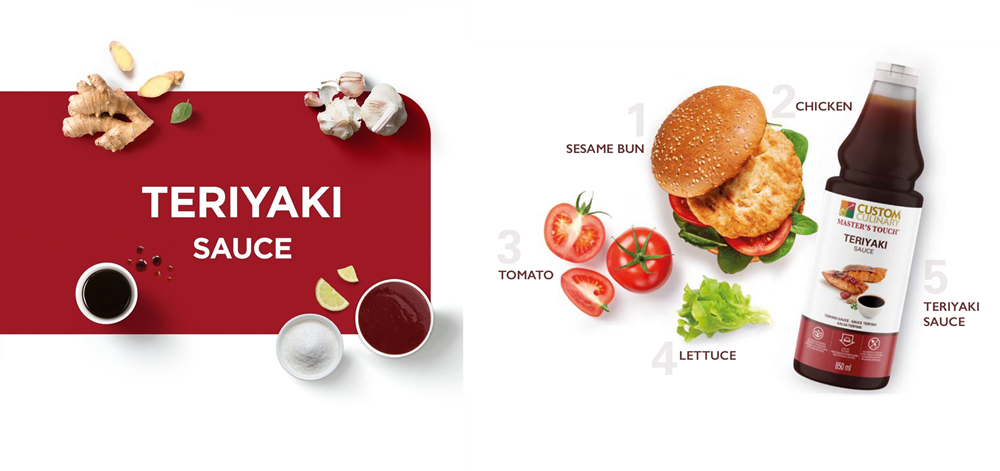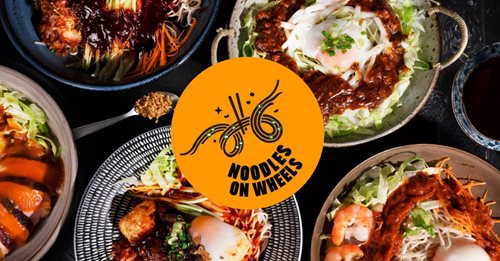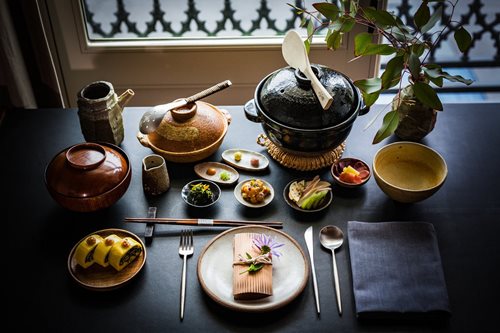Discovering Japan’s Culinary Treasures
With its focus on balance and simplicity, Japanese cuisine influences food trends around the globe.
Not only have traditional Japanese ingredients and flavours been shaped over centuries of history, but they also align with the way consumers want to eat today.
In foodservice, the influence of Japanese cuisine can be seen from quick service restaurants all the way to Michelin-starred fine dining establishments.
From a protein perspective, Japanese flavours are commonly used to enhance seafood, with items like cod in miso-yuzu butter sauce and ginger-miso-glazed salmon. German grocers are stocked with chicken karaage, deep fried with a soy, ginger and spice batter.
Umami-packed sauces heighten traditional proteins such as a fish sauce vinaigrette or dark soy sauce. Plant-based products are also making appearances in sushi and other dishes. “Waygu” is a vegan alternative made in Japan that utilizes Japanese cooking techniques and ingredients in its development in order to best replicate wagyu.
As food costs continue to rise, take a cue from the hallmarks of Japanese cuisine: capitalize on smaller, more curated portions and focus on bright, umami-forward flavours and unique textures.
3 TRENDS TO WATCH

MEATLESS AUTHENTICITY:
With proteins trending towards plant-based alternatives, foodservice operations will look for ways to remain true to cuisines such as Japanese barbecue and sushi while offering meatless versions.
EXPANDED FLAVOURS:
Operators will expand their flavour repertoire beyond soy, wasabi and miso with ingredients such as karashi, furikake and yuzu.
FLAVOUR FUSION:
With Japanese cuisine proliferating around the globe, foodservice operators will create fusion dishes that combine local culture with Japanese flavours.
Did you know that...
82% of UK consumers enjoy trying world cuisines they haven’t cooked before at home?
After American cuisine, Japanese is the fastest growing cuisine among European restaurants?
50% of German consumers agree that health is an important factor when choosing a world cuisine product?
Modern Takes on Authentic Cuisine
Simple yet elegant composition is one of the hallmarks of Japanese cuisine.
After analyzing more than 450 menu items of more than 20 top European restaurant chains we see that the most used ingredients in a burger are a Sesame Bun, Chicken, Lettuce and Tomato.
Through Food Pairing analysis we see that the fruitiness/citrus elements of our Custom Culinary® Master’s Touch® Teriyaki Sauce, a Japanese style Teriyaki sauce with soy sauce, ginger and lime, pairs really well with these ingredients as they all have a green note in common. Additionally our sauce is Suitable for Vegans, Low fat and No artificial flavours.

Focus on Sustainability
The interplay of health, wellness and sustainability can be seen throughout Japanese cuisine. Traditional dishes are based on a one-soup, three-course meal focused on fish and vegetables, with very little meat. Rice, soybeans and seaweed are featured prominently as well. Techniques such as fermentation (used in miso, mirin, tsukemono, natto, etc.) and aging (for some sushi and sashimi) are seen throughout Japanese cuisine as sustainable methods to extend the life of ingredients.
In recent years, as Japanese cuisine has grown in popularity, so has the consumption of tuna—making sustainable seafood more important than ever. Restaurants are also incorporating different types of fish of the menu (along with a wider array of cuts/parts) to reduce food waste.
Chef Josh Niland, winner of The Best Chefs Innovation award 2022 focuses on minimising fish waste and uses his passion to create innovative fish dishes that are totally unexpected and have won him the respect and recognition of fellow chefs, marine experts, seafood companies and fish mongers. Discover more about him here.
CHEF TIP

“Miso paste is an indispensable staple in any commercial kitchen. Combined with honey and a drop of toasted sesame oil, it makes an excellent glaze for grilled meats and vegetables. Or, add a touch of rice vinegar for an easy low-fat salad dressing.”
–Chef Mark Serice, Vice President Global Culinary, Griffith Foods*
foodservice inspiration

TiffinLabs and Unilever have announced the introduction of a new virtual restaurant brand serving noodles with authentic Asian flavours – Noodles on Wheels. It features an array of mouth-watering noodle dishes influenced by all-time favourite recipes around Asia such as the Japanese Maze Udon with a plant-based twist, thanks to the NoMince meat from The Vegetarian Butcher.
Single Thread Farm is a 3 Michelin-starred restaurant in Healdsburg, California. The menu is driven by nature and a reflection of Californian terroir but embodies Japanese cuisine and culture.
